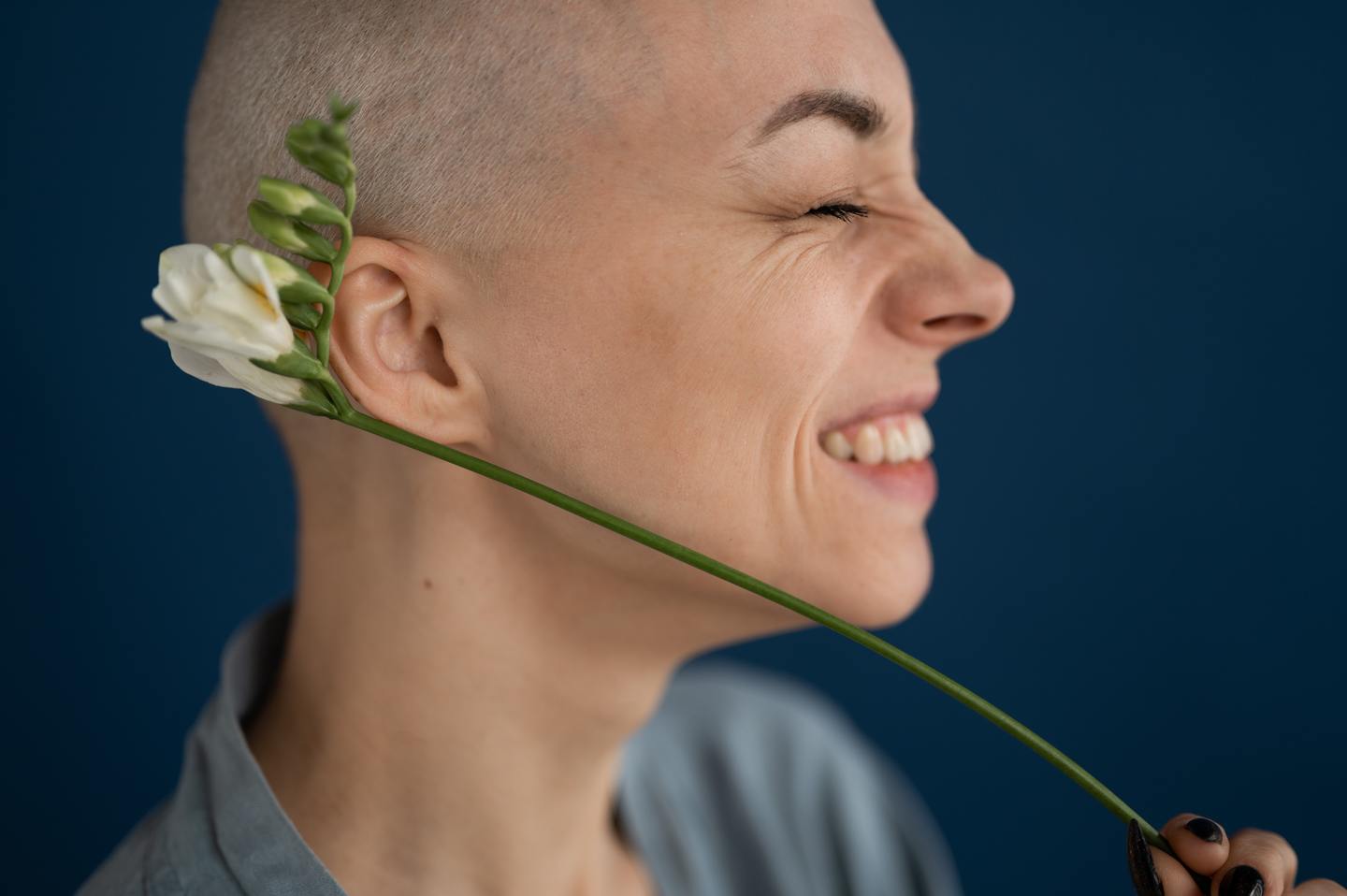Redefining Beauty

Overcoming Body Image Challenges as a Young Cancer Survivor
Introduction
A cancer diagnosis profoundly impacts young individuals' lives who are still in the early stages of their physical and emotional development. In addition to battling the disease, they confront body image challenges. Yet, with resilience and support, they courageously redefine beauty and embrace their distinctive paths.
Understanding Body Image
The concept of body image encompasses one's perception, thoughts, and feelings about their physical appearance, including aspects such as size, shape, and overall attractiveness. Body image is a multifaceted construct that can be influenced by cultural, social, and psychological factors. [1] For young cancer survivors, the experience of battling cancer and undergoing treatments often leads to physical changes that can significantly impact their body image perception. [2,3,4]
Physical Appearance Changes and Self-Perception
Physical changes resulting from cancer treatments like hair loss, scars, and weight fluctuations greatly affect the self-perception of young cancer survivors. [2,3,4] These alterations are particularly challenging for them as appearance and acceptance hold significant value during this life stage. Survivors long to restore their previous appearance, seeking a sense of normalcy, but may experience emotional struggles, embarrassment, and a loss of identity. [2,5]
Emotional Struggles and Body Image
Young cancer survivors may experience a wide range of emotions related to their changed appearance. They may feel self-conscious, alienated, or anxious about how others perceive them. [2] The pressure to conform to societal beauty standards can intensify these negative emotions. Many young cancer survivors find it difficult to adjust to their new bodies and may struggle with accepting themselves as they are. [2,4,6]
Redefining Beauty Standards
Young cancer survivors challenge society's narrow beauty standards by sharing their stories and embracing their scars. [7] Feminist theorists explore how female cancer survivors embrace physical consequences, challenging conventional views aesthetic effects of cancer treatments (e.g., hair loss and loss of body parts) as tragic or in need of correction. Instead, they emphasize empowering narratives and agency of the female body. [8,9] Finally, engaging in exercise and sports helps enhance their body image, fostering acceptance, physical control, and a stronger connection with their bodies. [2]
Raising awareness of body positivity breaks down social stereotypes and fosters a culture of acceptance. By fostering a culture that celebrates diversity and promotes self-love [8,9], young cancer survivors can be better supported in life after treatment and in positive body image. [2,4]
Author: Maria Vasilopoulou - UPATRAS
Sources:
[1] Alebachew, F., & Ashagrie, M. (2017). The body-image concept analysis of youth and adolescent. American Journal of Biomedical and Life Sciences, 5,130. 10.11648/j.ajbls.20170506.14
[2] Brierley, M. E., Sansom-Daly, U. M., Baenziger, J., McGill, B., & Wakefield, C. E. (2019). Impact of physical appearance changes reported by adolescent and young adult cancer survivors: A qualitative analysis. European journal of cancer care, 28(4), e13052. https://doi.org/10.1111/ecc.13052
[3] Dunne, S., Fitch, M., & Semple, C. (2022). Editorial: Body image following cancer treatment. Frontiers in psychology, 13, 1068977. https://doi.org/10.3389/fpsyg.2022.1068977
[4] Saris, L. M. H., Vlooswijk, C., Kaal, S. E. J., Nuver, J., Bijlsma, R. M., van der Hulle, T., Kouwenhoven, M. C. M., Tromp, J. M., Lalisang, R. I., Bos, M. E. M. M., van der Graaf, W. T. A., & Husson, O. (2022). A Negative Body Image among Adolescent and Young Adult (AYA) Cancer Survivors: Results from the Population-Based SURVAYA Study. Cancers, 14(21), 5243. https://doi.org/10.3390/cancers14215243
[5] Rasmussen, D. M., Hansen, H. P., & Elverdam, B. (2010). How cancer survivors experience their changed body encountering others. European Journal of Oncology Nursing: The Official Journal of European Oncology Nursing Society, 14(2), 154–159. https://doi.org/10.1016/j.ejon.2009.10.001
[6] Vani, M. F., Lucibello, K. M., Trinh, L., Santa Mina, D., & Sabiston, C. M. (2021). Body image among adolescents and young adults diagnosed with cancer: A scoping review. Psycho-oncology, 30(8), 1278–1293. https://doi.org/10.1002/pon.5698
[7] Lewis, P., & Weston, K. M. (2019). Representations of Young Cancer Survivorship: A Discourse Analysis of Online Presentations of Self. Cancer Nursing, 42(1), 79-85.
[8] Tetteh, D. A. (2022). “I just re-evaluated what was beautiful when I went through treatment:” an analysis of Elly Mayday’s ovarian cancer narrative. Feminist Media Studies, 22(8), 1853-1868.
[9] Trachtenberg, L. J., Esplen, M. J., & Piran, N. (2019). The embodied identities of young women diagnosed and treated for breast cancer. Women's Reproductive Health, 6(3), 182-203.
